Suu Kyi condemns rights abuse, decries suffering in Rakhine
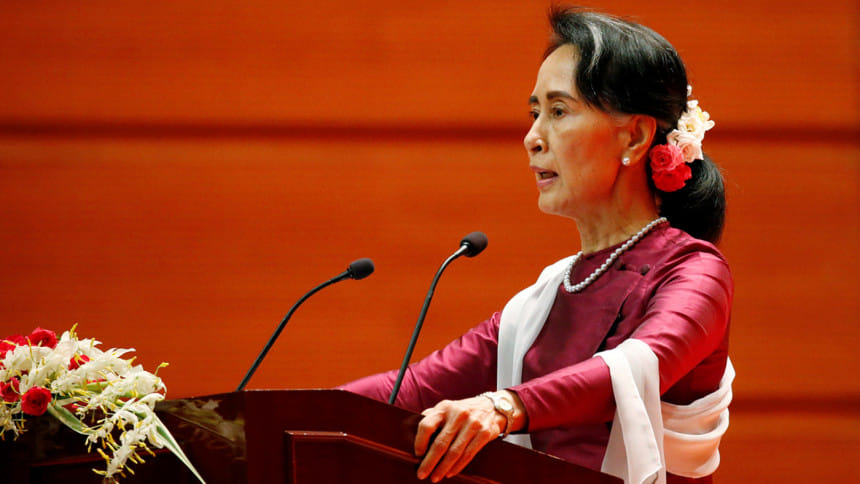
Myanmar leader Aung San Suu Kyi condemned on Tuesday any human rights violations in troubled Rakhine State and said anyone responsible would face the law, and that she felt deeply for the suffering of everyone caught up in the conflict there.
The Nobel Peace laureate's remarks came in her first address to the nation since attacks by Rohingya Muslim insurgents on Aug. 25 sparked a military response that has forced more than 410,000 Rohingya into neighbouring Bangladesh.
She said Myanmar did not fear international scrutiny and was committed to a sustainable solution to the strife. The United Nations has branded the military operation in the western state ethnic cleansing. Aung San suu Kyi did not address that accusation but said her government was committed to the rule of law.
"We condemn all human rights violations and unlawful violence. We are committed to the restoration of peace and stability and rule of law throughout the state," Suu Kyi said in her address in the capital, Naypyitaw.
Long feted in the West for her role as champion of Myanmar's democratic opposition in the Buddhist-majority country during years of military rule and house arrest, Suu Kyi has faced growing criticism for saying little about the abuses faced by the Rohingya.
"Action will be taken against all people regardless of their religion, race and political position, who go against the law of the land and violate human rights," she said.
"We feel deeply for the suffering of all the people caught up in the conflict."
EXODUS
The United States urged the Myanmar government on Monday to end military operations in Rakhine, grant humanitarian access, and commit to aiding the safe return of civilians to their homes.
Myanmar's powerful military remains in full charge of security and Suu Kyi did not comment on the military operations, except to say that there had been "no armed clashes and there have been no clearance operations" since Sept. 5.
"Nevertheless, we are concerned to hear that numbers of Muslims are fleeing across the border to Bangladesh," she said.
"We want to find out why this exodus is happening."
Rights monitors and fleeing Rohingya say the army and Rakhine Buddhist vigilantes have mounted a campaign of arson aimed at driving out the Muslim population.
Myanmar rejects that, saying its security forces are carrying out operations to defend against the insurgents of the Arakan Rohingya Salvation Army (ARSA), which claimed responsibility for the Aug. 25 attacks and for smaller assaults in October.
The government has declared ARSA a terrorist organisation and accused it of setting the fires and attacking civilians.
Western diplomats and aid officials attending the address welcomed Suu Kyi's message, although some wondered if she had said enough to end the global criticism.
"We have to take the speech at face value," said Paul Edwards, deputy representative of the U.N. children's agency in Myanmar, referring to her wishes for peace and her assertion there had been no military clearance operations since Sept 5.
"But of course, none of us really knows what's happening there," he said.
U.S. Deputy Assistant Secretary of State Patrick Murphy also attended the address.
'PROMOTING HARMONY'
Suu Kyi, 72, did not use the term Rohingya to refer to the Muslim minority in Rakhine but said her government had been making every effort to restore peace and stability and to promote harmony between the Muslim and largely Buddhist ethnic Rakhine communities.
Members of the 1.1 million group who identify themselves as Rohingya are seen by many Myanmar Buddhists as illegal immigrants from Bangladesh, rather than as members of a distinct, indigenous ethnic group.
Suu Kyi said her government was committed to the swift implementation of recommendations made by an advisory team led by former U.N. secretary-general Kofi Annan.
Annan's panel recommended last month the acceleration of a citizenship verification process and, in the longer term, a review of the citizenship law, which makes a link between citizenship and ethnicity and leaves most Rohingya stateless.
On the return of refugees, Suu Kyi said Myanmar was ready to start a verification process at any time.
"Those who have been verified as refugees from this country will be accepted without any problem and full assurance of the security and the access to humanitarian aid," she said.
Previously, only very few refugees were able to return from Bangladesh under a lengthy and complex verification process.
She also called on the international community to support her government's efforts to end conflict with other ethnic minority guerrillas, and to support peace across the whole country and not to focus just on "little afflicted areas".
Suu Kyi is banned from the presidency by the military-drafted constitution because her children have British citizenship. She holds the offices of state counsellor and minister for foreign affairs, and leader of the administration.

 For all latest news, follow The Daily Star's Google News channel.
For all latest news, follow The Daily Star's Google News channel. 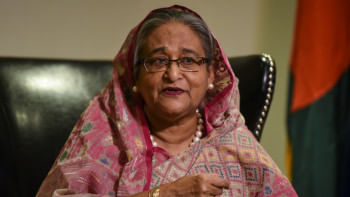


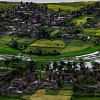
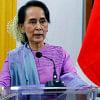
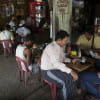
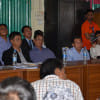
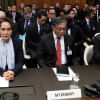


Comments